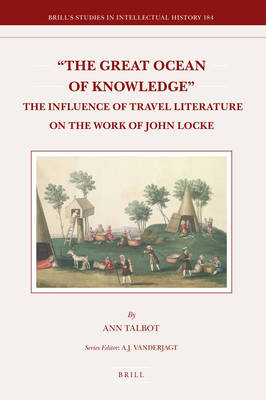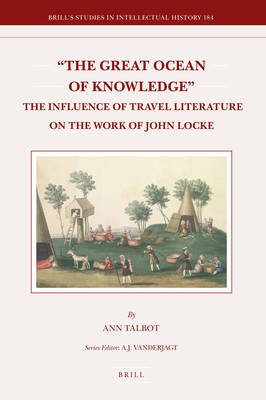
- Afhalen na 1 uur in een winkel met voorraad
- Gratis thuislevering in België vanaf € 30
- Ruim aanbod met 7 miljoen producten
- Afhalen na 1 uur in een winkel met voorraad
- Gratis thuislevering in België vanaf € 30
- Ruim aanbod met 7 miljoen producten
Zoeken
The Great Ocean of Knowledge
The Influence of Travel Literature on the Work of John Locke
Ann Talbot
€ 232,45
+ 464 punten
Omschrijving
The philosopher John Locke (1632-1704) owned one of the most extensive collections of travel literature held in any private scholarly library of his day. It is an interest which seems very much at odds with Locke's reputation as an empirical philosopher because travellers' reports have acquired a reputation for unreliability. This book sets Locke's use of travel literature within the context of the natural historical methods of investigation associated with Francis Bacon and the Royal Society. It examines the notes he made in his commonplace books to demonstrate that Locke was developing a form of comparative social anthropology and had a sympathetic attitude towards Native Americans despite his role as a colonial adminstrator.
Specificaties
Betrokkenen
- Auteur(s):
- Uitgeverij:
Inhoud
- Aantal bladzijden:
- 348
- Taal:
- Engels
- Reeks:
- Reeksnummer:
- nr. 184
Eigenschappen
- Productcode (EAN):
- 9789004181151
- Verschijningsdatum:
- 11/01/2010
- Uitvoering:
- Hardcover
- Formaat:
- Genaaid
- Afmetingen:
- 165 mm x 246 mm
- Gewicht:
- 657 g

Alleen bij Standaard Boekhandel
+ 464 punten op je klantenkaart van Standaard Boekhandel
Beoordelingen
We publiceren alleen reviews die voldoen aan de voorwaarden voor reviews. Bekijk onze voorwaarden voor reviews.








